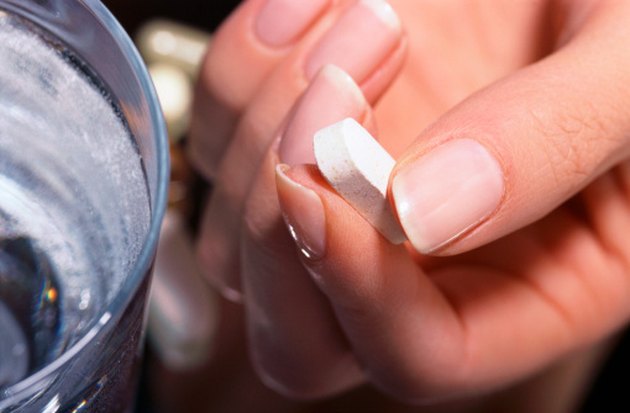
Vitamin C is necessary for healthy skin, ligaments, tendons and blood vessels. It also helps heal wounds and form scar tissue and helps repair and maintain bones, teeth and cartilage. Vitamin C fights free radicals, which are harmful substances that can damage parts of your body, such as air pollutants or radiation. While vitamin C is good for you, getting too much can be a bad thing and you can suffer side effects, such as headache.
Side Effects
Too much vitamin C can cause side effects such as heartburn, nausea, diarrhea, headache, vomiting, stomach cramps, insomnia and kidney stones. You may not experience all of these side effects, but it is possible you may suffer from more than one at a time. These side effects are generally seen when vitamin C is taken in megadoses, according to MayoClinic.com.
Dosage
Men need 90 mg of vitamin C per day and women need 75 mg of vitamin C. Smoking depletes vitamin C so if you smoke, you may need an additional 35 mg of vitamin C each day. To determine how much vitamin C is appropriate specifically for your needs, ask your doctor. The recommended upper limit of intake of vitamin C is 2,000 mg per day. Do not take vitamin C supplements without speaking to your physician and never consume more than the recommended daily intake without instruction from your physician.
Excess Vitamin C
Typically, excess vitamin C that your body cannot use is eliminated from your body when you urinate. Vitamin C is a water-soluble vitamin, which means your body does not store it. Since it's not a stored vitamin, vitamin C overdose is rare and usually only occurs when taken in large doses at once, such as a megadose. If you take large doses, you may experience these symptoms.
Considerations
If your diet includes plenty of foods such as citrus fruits, red peppers, broccoli, strawberries, orange juice and tomatoes, you shouldn't need to take a vitamin C supplement. If you're concerned about your vitamin C levels, ask your physician to check for a deficiency. Signs of a vitamin C deficiency include bleeding gums, decreased wound healing speed, decreased ability to fight infection and easy bruising. You might also have swollen and painful joints and dry, rough skin.